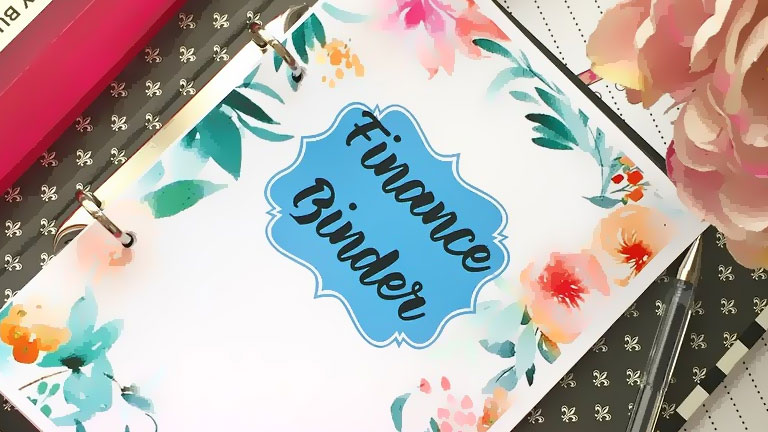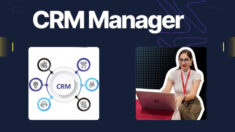
A personal finance binder is one of those tools that can be incredibly useful a lot of the time. It allows you to track your finances, figure out what expenses you need to remove, and also narrow down the best investments. With that in mind, it’s important to know what you can add to the personal finance binder and what it should include in the first place. That being said, here’s a list of stuff that we recommend adding to your personal finance binder.
Banking information
Naturally, the binder needs to have all your banking info. That’s important because it will provide you with access to your finances, and that does help quite a bit. With that being said, you can have the account lists, but also SWIFT and IBAN codes, bank info, online banking backup, and a balance snapshot. That info does help quite a lot, and having it all in a single place helps much more than you would anticipate, so keep that in mind.
Loan and debt records
The personal finance binder also needs to have the info related to any debt you currently have. We all have some sort of debt here and there. Knowing what that is and keeping debt under control matters more than expected. We need to have mortgage papers, student loan info, credit card lists, personal loans, and any other debt. Knowing the due dates, what you need to pay every month, and that will help more than you might expect.
Employment records and income
Within the personal finance binder, you also want to have the employment and income records. It’s obvious why this is your income, and having that info in there can be extremely helpful. You will know how much you are working with, and all that info is going to make things much easier to manage. Not only that, but aside from the pay stubs, you can add side hustles, tax forms, digital payments, employment contracts, and many others.
Investments
A lot of people choose to invest their money in different ways, and the personal finance binder can help track as well as reflect on those investments. Most commonly, brokerage accounts and retirement accounts tend to be the most appealing investment solutions. But you can also invest in real estate, crypto, and many others, even gold.
That alone is a great idea, and it certainly helps take things to new heights all the time. Plus, investing means you can have a good return eventually, as long as you educate yourself on what the right investments are and where you can get the best ROI.
Keep a record of your utility bills
At the same time, the personal finance binder should also have a list of utility bills and what you pay on a monthly basis. You can try to go the route of using a utility bill generator. Such a tool is great because it allows you to create your own utility bills, track them, and store the info in a single place. Then, when you need to know when you paid your bills and how much you paid, that info will all be there, so it matters a lot.
Set up a monthly or annual budget
As we all know, budgeting is important because you really want to track your finances effectively. And that’s not exactly the easiest thing to do a lot of the time. The most important thing is to set a budget every month and stick with it. Set annual goals and even a goal for how many subscriptions you need or want to use. It also pays off to set an emergency fund that you can tap into whenever there are financial issues. It might not seem like much, but that’s going to make the process much better.
Legal and estate documents
It also helps to have estate and legal documents in your personal finance binder. Even if a binder like that should focus on finances, a lot of legal documents relate to your financial well-being. And that’s why it’s extremely important to take your time and have things like your will, trust documents, and many other similar things. Keeping those in an adequate, safe location always helps, and it can make a huge difference.
Insurance information
We should also keep in mind that insurance does help quite a bit, and it can alleviate a lot of potential issues. And yes, having that info in the personal finance binder is a great idea, too. We recommend sharing that info in the binder just because you want to track any possible help you get in case anything goes wrong. And the faster you’re addressing this, the better it will be in the end. That can prove to be a game-changer a lot of the time.
Digital access and passwords
We think it’s very important to have all the info you need when it comes to passwords and digital access to all the content you need. And that’s the thing, a lot of people lose access to their passwords because they don’t manage stuff correctly. The best thing you can do in these situations is to try and manage everything quickly, effectively, and in a way that truly works, for the best possible results.
Key notes and emergency info
There’s always a challenge when it comes to accessing people when necessary. And you do want to take your time with this stuff and see what works in your situation. But yeah, it does make sense to have some key notes when it comes to who you need to contact in case stuff goes wrong. Plus, emergency contacts should be a part of the personal finance binder as well, as they do matter quite a bit and can share a lot of important info.
Managing your binder
Now that you have made a personal finance binder, it makes sense to take good care of it, because it’s a go-to financial tool you have. Plus, it’s very useful and it can deliver a great value and experience, which is something you will enjoy quite a bit.
- Keep the binder up to date with all the relevant information. Keep all the info ready to access and make sure everything is up to date, as it will help more than expected.
- Review all the sections and see whether you need to change anything or if there is stuff that must be optimized. The more you keep things up to date, the better it will be.
- Test the digital links and QR codes, and also see if any passwords need to be added or removed. It’s going to make things easier and much more consistent.
- Update the net worth snapshot often, whenever you need to make any changes.
In the end, it is clear that having a personal finance binder is a very good idea, and you should totally keep that in mind. It is never easy to try and narrow down all the financial info you have if it is spread in dozens of places. But if you keep stuff in a single place, that will make things much simpler, and it will bring better results thanks to it. Sure, it takes time, but once you have a good personal finance binder, it’s much easier to manage your income, investments, and all the other financial info!


